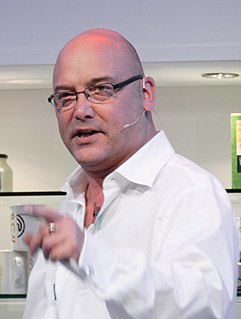A Quote by Joel Salatin
Nobody trusts the industrial food system to give them good food.
Related Quotes
We need to realize that these industrial methods of farming have gotten us used to cheap food. The corollary of cheap food is low wages. What we need to do in an era when the price of food is going up is pay better wages. A living wage is an absolutely integral part of a modern food system, because you can't expect people to eat properly and eat in a sustainable way if you pay them nothing. In fact, it's cheap food that subsidized the exploitation of American workers for a very long time, and that's always been an aim of cheap food.
Food is one part. Love is another part. I cut their hair, I give them a shave, I give them bath. For them, to feel psychologically that they are also human beings, there are people to care for them, they have a hand to hold, hope to live. So, the food will give them physical nutrition. The love and affection which you show, will give them mental nutrition.
If there was ever a food that had politics behind it, it is soul food. Soul food became a symbol of the black power movement in the late 1960s. Chef Marcus Samuelsson, with his soul food restaurant Red Rooster in Harlem, is very clear about what soul food represents. It is a food of memory, a food of labor.































